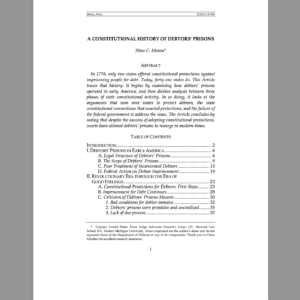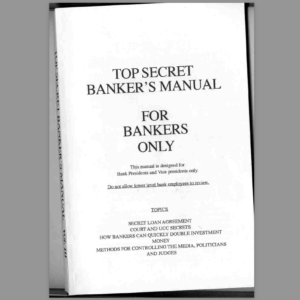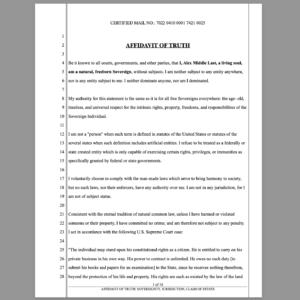Black’s Law Dictionary 1st Edition, page 1136:
SUMMARY, adj. Immediate; peremptory; off-hand; without a jury; provisional; statutory.
Black’s Law Dictionary 2nd Edition, page 1122:
SUMMARY, n. An abridgment ; brief ; compendium ; also a short application to a court or judge, without the formality of a full proceeding. Wharton.
SUMMARY, adj. Immediate ; peremptory ; off-hand ; without a jury ; provisional ; statutory.
-Summary action. In Scotch law. Those which are brought into court not by summons, but by petition, corresponding to summary proceedings in English courts. Bell; Brown.
-Summary conviction. See CONVICTION.
-Summary jurisdiction. See JURISDICTION.
-Summary procedure on bills of exchange. This phrase refers to the statute 18 & 19 Vict. c. 67, passed in 1855, for the purpose of facilitating the remedies on bills and notes by the prevention of frivolous or fictitious defenses. By this statute, a defendant in an action on a bill or note, brought within six months after it has become payable, is prohibited from defending the action without the leave of the court or a judge. See 2 Steph. Comm. 118, note; Lush, Pr. 1027.
-Summary proceeding. See PROCEEDING,
Black’s Law Dictionary 3rd Edition, page 1673:
SUMMARY, n. An abridgment ; brief ; compendium ; also a short application to a court or judge, without the formality of a full proceeding. Wharton.
SUMMARY, adj. Immediate ; peremptory ; off-hand ; without a jury ; provisional ; statutory.
-Summary action. In Scotch law. Those which are brought into court not by summons, but by petition, corresponding to summary proceedings in English courts. Bell; Brown.
-Summary conviction. See CONVICTION.
-Summary jurisdiction. See JURISDICTION.
-Summary procedure on bills of exchange. This phrase refers to the statute 18 & 19 Vict. c. 67, passed in 1855, for the purpose of facilitating the remedies on bills and notes by the prevention of frivolous or fictitious defenses. By this statute, a defendant in an action on a bill or note, brought within six months after it has become payable, is prohibited from defending the action without the leave of the court or a judge. See 2 Steph. Comm. 118, note; Lush, Pr. 1027.
-Summary proceeding. See PROCEEDING,
Black’s Law Dictionary 4th Edition, page 1604:
SUMMARY, n. An abridgment; brief; compen- dium; also a short application to a court or judge, without the formality of a full proceeding. Whart- on.
SUMMARY, adj. Short, concise. State v. Bett- man, 124 Ohio St. 24, 176 N.E. 664, 665. Immedi- ate, peremptory; off-hand; without a jury; pro- visional; statutory. The term used in connection with legal proceedings means a short, concise, and immediate proceeding. Vance v. Noel, 143 La. 477, 78 So. 741, 742; and trial of a “summary” character is a trial without a jury. State v. King, 137 Tenn. 17, 191 S.W. 352, 354; City of St. Paul v. Robinson, 129 Minn. 383, 152 N.W. 777, Ann.Cas. 1916E, 845.
Summary actions. In Scotch law. Those which are brought into court not by summons, but by petition, corresponding to summary proceedings in English courts. Bell; Brown.
Summary conviction. See Conviction.
Summary jurisdiction. The jurisdiction of a court to give a judgment or make an order itself forthwith; e. g., to commit to prison for con- tempt; to punish malpractice in a solicitor; or, in the case of justices of the peace, a jurisdiction to convict an offender themselves instead of com- mitting him for trial by a jury. Wharton.
Summary procedure on bills of exchange. This phrase refers to the statute 18 & 19 Vict. c. 67, passed in 1855, for the purpose of facilitating the remedies on bills and notes by the prevention of frivolous or fictitious defenses. By this statute, a defendant in an action on a bill or note, brought within six months after it has become payable, is prohibited from defending the action without the leave of the court or a judge. See 2 Steph. Comm.118, note; Lush. Pr. 1027.
Summary proceeding. See Proceeding
SUMMARY PROCESS. See Process.
Black’s Law Dictionary 8th Edition, page 4502:
summary, adj.1. Short; concise <a summary account of the events on March 6>.2. Without the usual formalities; esp., without a jury <a summary trial>.3. Immediate; done without delay <the new weapon was put to summary use by the military>. — summarily (s<<schwa>>m-<<schwa>>r-<<schwa>>-lee or s<<schwa>>-mair-<<schwa>>-lee), adv.
summary,n.1. An abridgment or brief. 2. A short application to a court without the formality of a full proceeding.












Recent Comments